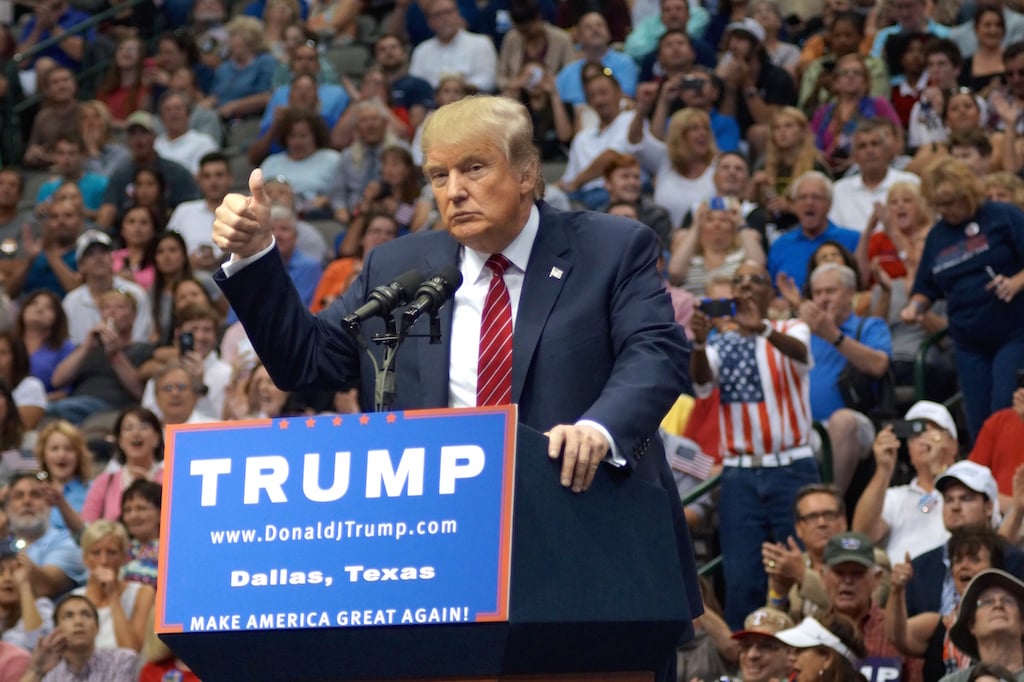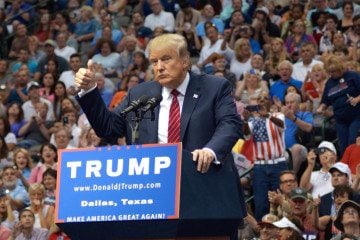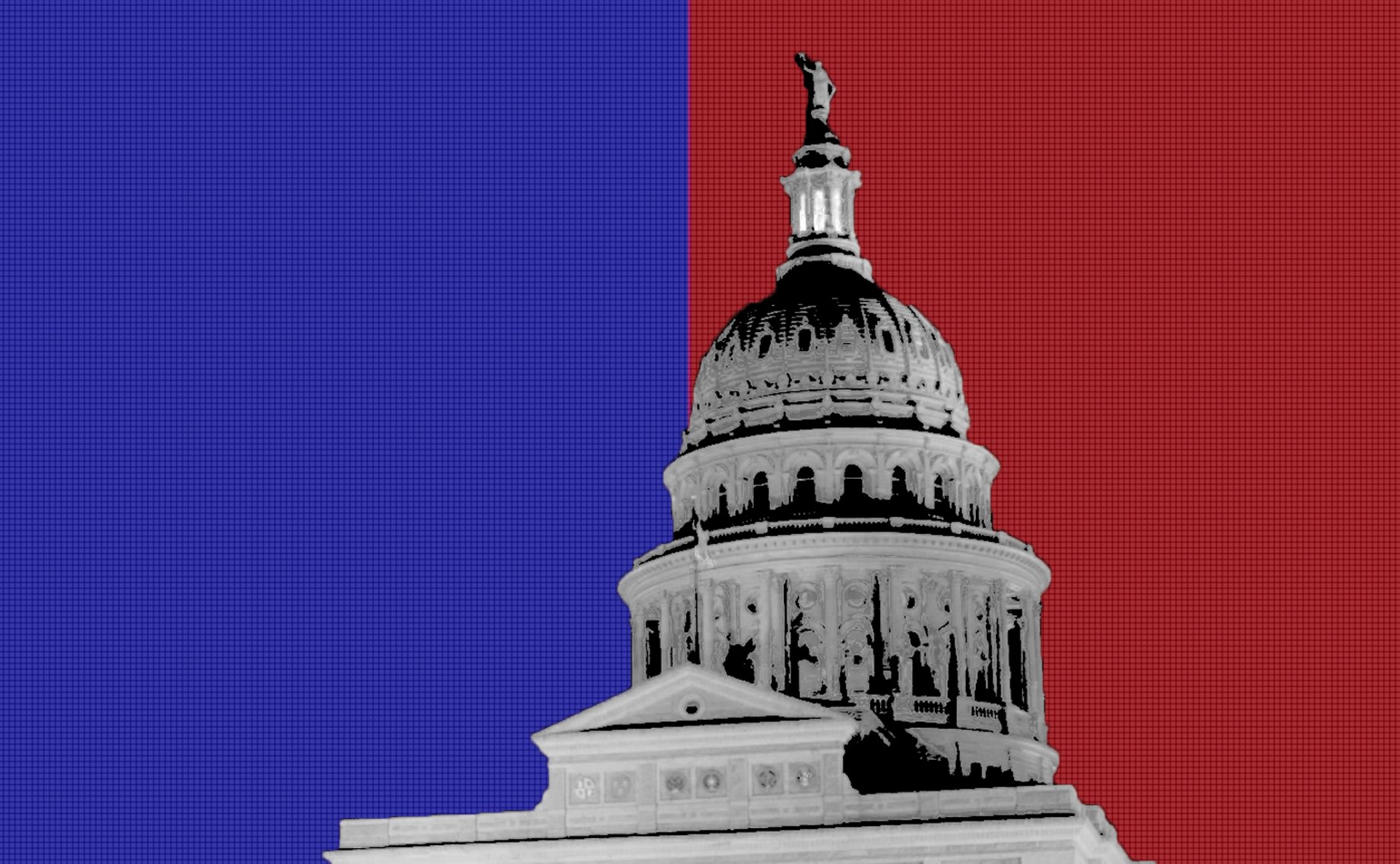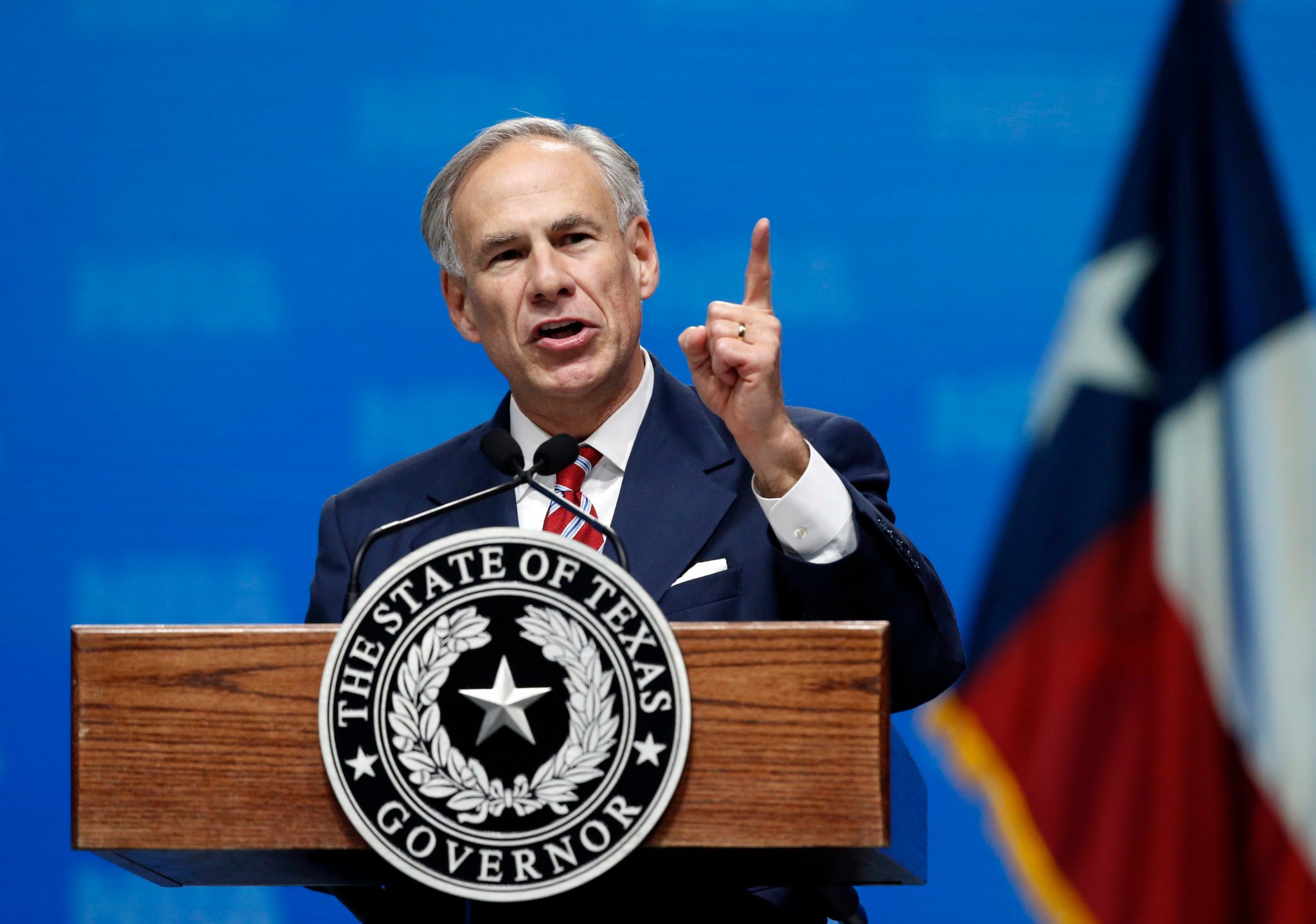
The Trumpist Revolution Rambles Its Way to Dallas


Let it be forever recorded in the annals of political history that when the Trumpist Revolutionary Calendar flipped over to year two — and earth had passed through 365 days since Donald Trump, real estate developer and Queens hoodlum, descended from his gilded Tower to announce his run for the U.S. presidency — he celebrated the occasion in a Dallas honky-tonk.
The Thursday rally at Gilley’s, a southside mainstay, marked Donald Trump’s second visit to Dallas and third to Texas. When he first came to Dallas in September, one particularly thick-headed commentator — namely, me — thought his fortunes were probably in slow decline. Though the event at Mark Cuban’s American Airlines Center was extremely high-energy, Trump himself was boring. Although his punchy-cruel soundbites work on TV, in person, at least at that event, he rambled on way too long. He seemed addled. Cable networks cut away early, and the stadium started to empty before he finished.
Trump’s second Dallas show was as addled as his first — maybe even more incoherent. Something peculiar is happening to the man’s fragile psychology as he gets closer to the White House: It’s hard to tell whether he even wants to be in this position.
But the most worrisome change isn’t the one happening in the Donald’s brain: The scariest change is in the people around him. Although his peculiarities have been outright rejected by a handful of people within the Republican Party, more have embraced him, at least partially and reluctantly. It’s through this coterie of supporters and advisors, who have adopted his freakish movement for their own ends, that Trump’s damage will truly be inflicted.
At the Thursday rally, he was introduced by a number of Texas Republicans hoping to capitalize on the Trump brand: Andy Nguyen, a Vietnamese-American Tarrant County commissioner, said Texas Repubs, though they’re heartsick about the vanquishing of the Great Ted Cruz, should rally around Trump and, if they don’t like his tactics, just suck it up. Quoting General Patton, he said, “Nobody ever defended anything successfully…Only attack, attack and attack some more.”
Then Wayne Christian, candidate for a seat on the Railroad Commission, stepped to the mic, even peppier than usual. Christian is the only Republican running for statewide office this cycle, and it’s notable that he made sure to be here, since some of his fellow-travelers worry Trump’s probably dismal performance will hurt down-ballot races.
“I’m glad to say we got a fellow who’s rich, real rich,” Christian said. “He doesn’t have to bow down and kiss anybody’s rings,” and he’d fight for the “common man.” He was down for the cause, as long as the Trumpists remembered to vote for him, too. “Just remember, vote for the only Christian on the ballot,” he said with a wide grin, before giving the crowd a dual thumbs-up and disappearing off the stage.
Then, a disembodied voice rang out from the speakers, with a reassuring message about crowd control. Trump’s enemies, the protesters who keep popping up at his events, “take advantage of Mr. Trump’s hospitality” to advance their own crooked agendas. If they did, the voice directed the crowd, security would take care of it. “Please do not touch or harm the protestors,” it urged.
Just before Trump was to speak, one more person took the podium — Stephen Miller, Trump’s “senior foreign policy advisor” and former aide to longtime Alabama Senator Jefferson Beauregard Sessions, himself one of the upper chamber’s most retrograde individuals. Though policy advisors usually don’t do stump speeches, Miller grabbed the mic, then spoke about the anger driving Trump fandom with more conviction and clarity than his boss.
“Everyone who stands against Donald Trump now are the people who have been running this country into the ground,” Miller said. “They’re the people who have been controlling the levers of power.” They’re responsible for the rot, the decay, the human detritus that fills the nation — the filth on the streets. “Everything that is wrong with this country today, the people opposing Donald Trump are responsible for.”
“When did we forget that the purpose of a nation is to serve its own citizens?” he continued. “Donald Trump is going to build that wall so your family can be safe….How many American lives, American families, were torn apart because our politicians were so focused on lining their pockets? Don’t ever let someone tell you that you are not a good person for wanting to secure the border.”
People have spent a lot of time arguing about whether Trump should be understood as a fascist or authoritarian figure. But it’s often hard to divine meaning from anything he says. Miller’s rhetoric is clearer, and since Trump is often a vacuum when it comes to policy, people like Miller are filling the emptiness. The nationalism-lite message of people like Miller’s former boss in the Senate has long stayed on the fringe, but the vehicle of Trump’s campaign is giving it a wider audience.
Finally, out walked Trump — the big goof, to the tune of “Deep in the Heart of Texas.”
“Thank you, oh, we love Texas — we’re gonna win Texas so big,” he said to huge cheers. It’s difficult to summarize his subsequent speech, or even describe its main themes. But here are some highlights:
On the venue’s mechanical bull: “Where’s that horse? I want to go on the horse. You want to be in the papers tomorrow? Let’s get that horse. I’ll ride the horse.”
On the entertainment value of his campaign: “Do we have a fun time at Trump rallies? “Do we have any protesters? Please raise your hand. Leave them alone. They’re a nice protester. Do we have a great time or what?”
On the Orlando shooter: ”You see what one sleazebag can do. One sleazebag.”
On the press and Mexicans: “The press lies.” “I have thousands of Mexicans working for me,” “I’m gonna bring jobs back.” “We’re gonna win with the Latinos.”
On taxes: “Oh by the way, I’m lowering everybody’s taxes more than anybody else.” Huge cheers. “Hillary Clinton wants to raise taxes big league.”
Trump spent a substantial portion of his speaking time describing primaries he’d won, opponents he’d defeated, and celebrities who’ve endorsed him: Boxing promoter Don King, fight promoter Dana White, etc.
But the main course of the night came in Trump’s recitation of how basketball coach Bobby Knight came to endorse him. Why? I couldn’t say. He weaved in and out of the story for ten to fifteen minutes.
Here is the main proposal from Trump’s speech. At the Republican convention, Donald would like to have a “Winner’s Night” instead of a bunch of speeches given by boring politicians. Which winners? He only mentions Knight by name — a man who won a lot of basketball games decades ago, then slowly self-destructed because of anger problems.
As the Thursday event wound on, Trump talked for an hour. He stepped off stage to country music, shook a few hands by the ropeline, then stepped out. A Secret Service motorcade befitting a president and a phalanx of Dallas police officers whisked him down South Lamar Street, away from the horde and closer and closer to a shot at real power.


